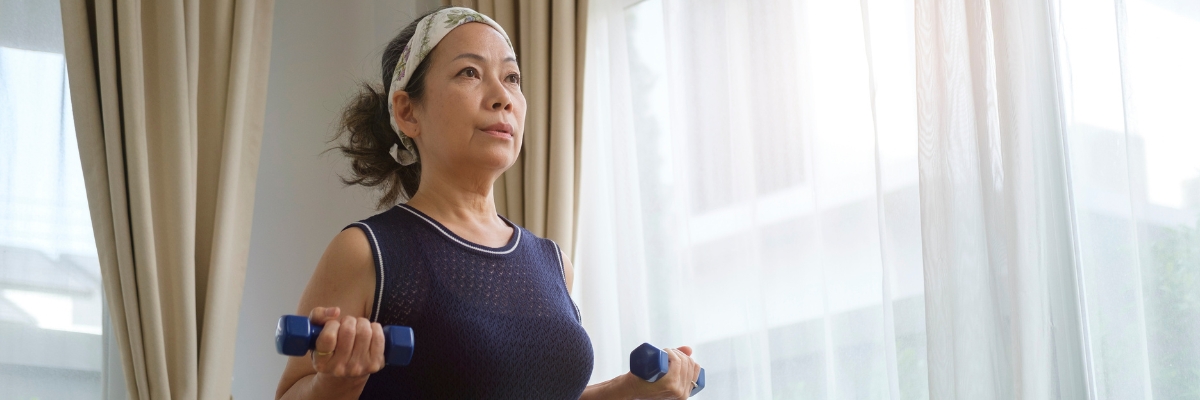Menopausal Weight Gain, causes and treatment options
It seems cruel that just as we begin to relax because we no longer menstruate, we get hit by a host of new challenges instead, like menopausal symptoms. Not only does menopause (and perimenopause) cause hot flashes, incontinence, vaginal dryness, and more in some women, it can also cause us to gain weight!
Most menopausal women can expect to see some weight gain, especially around the waist. The hormonal changes of menopause might make you more likely to gain abdominal fat than weight around your hips and thighs.

Not all weight gain is a threat to your health, but gaining too much weight can tax your body and lead to hypertension, diabetes, and heart disease. A larger waistline raises these risks even more. There’s a link between estrogen and body fat storage. Post-menopausal women burn less fat than they did in their pre-menopausal years.
During the menopause transition, night sweats, sleep disturbance, and mood problems are common and may affect a woman’s ability to adhere to a healthy diet and exercise.
With the help of your medical professionals and some lifestyle changes, you should be able to manage your weight and stay healthy through menopause.
What Causes Weight Gain in Menopause?
There are several reasons why weight gain is so ubiquitous among menopausal women. The first reason is the impact of estrogen. Estrogen aids in controlling weight and metabolism.
When a woman’s body slows estrogen production, it lowers her metabolic rate, the rate at which stored energy (fat) is converted into working energy. As we age and slide into menopause, it is suspected that declining estrogen levels may lower the rate of energy used during exercise.
Another reason is the lack of physical activity. Older adults are less likely to exercise as they age, which causes the loss of muscle mass, which in turn slows the metabolic rate.
Even if you are an active adult, slowing your metabolic rate means you probably will need to increase the time and intensity of your exercise routine to achieve the same weight management you had before menopause. This is not that different from what our male counterparts go through as they age and their testosterone levels drop.
Remember, successful weight loss at any stage of life requires permanent changes in diet and exercise habits.
Dieting during Menopause
Our diet is a big factor in abdominal weight gain. Insulin resistance and blood sugar imbalance are huge problems that lead to increased belly fat.
So what kind of diet am I talking about here? A diet high in carbs, processed foods, sugar, alcohol, and such. When you eat a lot of carbs on an ongoing basis, insulin is constantly stimulated. This can lead to a health condition called insulin resistance, where the cells start to resist the insulin.
In menopause, “a lot” of carbs really isn’t that much, and sadly, the “good” carbs, such as fruits and grains, also factor in here.
Eat less and incorporate a healthy diet of low carbs. To maintain your current weight — let alone lose excess pounds — you might need about 200 fewer calories a day during your 50s than you did during your 30s and 40s. Pay attention to what you’re eating and drinking to reduce calories without skimping on nutrition. Choose more fruits, vegetables, and whole grains, particularly those that are less processed and contain more fiber. Healthy protein options include legumes, nuts, soy, meat, fish, and chicken. Replace butter, stick margarine, and shortening with oils like olive or vegetable oil. Maintain a healthy weight for your age and height.
Check your sweet habit. Added sugars account for nearly 300 calories daily in the average American diet. About half of these calories come from sugar-sweetened beverages, such as soft drinks, juices, energy drinks, flavored waters, and sweetened coffee tea.
Exercise During Menopause

Exercise has so many health benefits. The more active you are, the less weight you will gain. Exercise is one of the most effective ways to:
- Manage your weight
- Retain bone density, lowering risks of osteoporosis
- Relieve mood issues and depression
- Reduce your odds of having a heart attack
- Lower the risks of cardiovascular disease
- Improve insulin resistance
- Lower chances of developing type II diabetes
- Strengthen your muscles and joints
- Increase sexual health
- and the list goes on and on.
Exercise can make a measurable difference in your life. A study conducted by the National Institutes of Health found that people who did only 10 minutes of aerobic activity every day had waistlines an average of six inches smaller than people who didn’t exercise at all.
If you’re not active, transitioning into a daily exercise routine might sound exhausting at first, but you’ll start to feel much better within a few weeks.
What Kinds of Exercise Should I Do?

There are two main types of exercise, and menopausal women should try to get both to reap the most health benefits.
Strength training
You’ll want to adopt a weight-resistance exercise program to rebuild lost muscle mass, increase your metabolic rate, and maintain bone mass. Many strength training types – most people picture weight lifting with dumbbells, kettlebells, and resistance machines. You can also strength-train with elastic bands, yoga, or Pilates classes, to name a few.
Cardio Training
Aerobic exercises work your heart and lungs and increase your cardiovascular health. I almost always recommend low-impact activities for beginners, those returning to exercise after being away, and seniors to reduce the stress on the body and the risk of injury. Swimming, biking, walking, and dancing are great choices; you can enjoy them alone or with a partner.
Exercise Tips
Before you start, please talk to your doctor about your exercise routine.
Here are some tips that can help you stick with an exercise routine and minimize injuries:
- Partner up with a spouse, friend, or family member to stay motivated.
- Buy new shoes that will support your feet during your workouts.
- Warm-up for at least 10 minutes before vigorous exercise. This includes stretching your muscles before you begin to reduce the chance of soreness and injury.
- Find a routine that works for you and that you enjoy. If you get bored with your routine, mix it up and add a new activity.
















